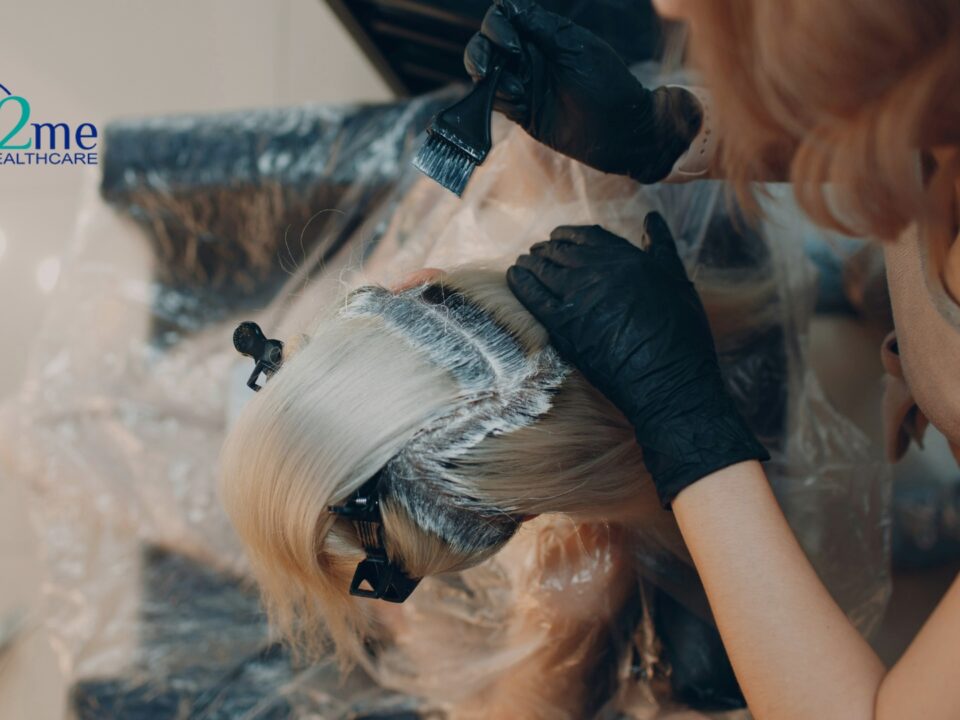Why We Need to Normalize Talking About Vaginas

Understanding a Midwife’s Role in Your Pregnancy
September 17, 2020
12 of the Best Foods to Eat When Pregnant
November 12, 2020It’s time we had a talk about vaginas. I mean like, really had a talk about them.
Did you know that 65 percent of women are uncomfortable with using words like vagina and vulva? Only referring to it as “down there.” Or that 45 percent of women don’t talk about their vaginal health with friends or family, let alone their doctor? When you start to look at the numbers, they’re heartbreaking.
Female genitals are still very much in the closet, even in 2020. Despite existing since the beginning of time, the public still knows very little about them. In fact, 50 percent of young women can’t correctly label a vagina on a medical diagram.
And when it comes to having conversations with women about vaginal health, most of them tend to shy away from the topic as if merely thinking about the word will summon Voldemort or bring on the apocalypse. How can we expect to receive efficient care for something we can barely bring ourselves to mention by name?
It’s funny that we do, however, have countless nicknames for it. From the delicate lady bits, flower, hoo-ha, and Oprah’s credited vajayjay, to more vulgar ones like cookie, snatch, hot pocket, and my personal favorite: chamber of secrets. All of these names, yet, we’re so afraid to talk about them openly, if at all.
I’ll admit the last one isn’t too far off. Vaginas are chambers full of secrets, and it’s mostly because we make them that way. It’s surprising, and a bit disappointing how little men and women alike know about vaginas, its different parts, or that like all good things, vaginas come in all sizes, shapes, and colors. That’s not how it should be. Vaginas should be celebrated for the multi-tasking wonders that they are, but also talked about as casually as we do a big toe, our arms, or our knees.
But why are we so afraid of vaginas?
The answer is fear and centuries of misogyny and misunderstanding.
A Brief History
Women’s pocket pals didn’t always have a name. They were given the name “vagina” somewhere around the 1680s. Until that point, the Latin word had a different definition, meaning scabbard or a sheath for a sword. Which, if you think about it, is somewhat fitting.
Throughout history, vaginas and how they work were the subject of mystery. Ancient Greek physician Aretaeus believed that the uterus was like an “animal within an animal,” displacing itself and moving throughout women’s bodies, causing illness as it bumped into other organs, and only lured back into place by pleasant fragrances. And historian Thomas Laqueur noted that in his day it was common belief in his age that men and women shared the same sex organs. It wouldn’t be until the 1840s that the gynecology field, as we know it today, was invented by James Marion Sims.
In more recent years, women’s health issues with women’s bodies have still been overlooked or downplayed. In 1994 the National Institutes for Health required clinical trials to include women. As for studies related to women’s sexual dysfunction, there are currently only 133, compared to the 398 studies in progress related to men’s erectile dysfunction.
Power in a Name
Although “vagina” is the term widely shouted and whispered worldwide, it’s not the actual term for your lady parts. Vagina nowadays is used as a catch-all, but the word is vulva. Quick anatomy lesson: The vulva is the outer part of your genitalia, i.e., your clitoris, clitoral hood, urethra, labia majora and minora, and the pubic mound. Your vagina is the hole from which you give birth, have periods, undergo yearly examinations with your gynecologist, and use for sexual pleasure.
A healthy vagina is paramount to women’s physical, mental, and emotional health. It’s incredibly important that we talk about them. When we ignore vaginas and keep quiet about them, it leaves the door open to women developing insecurities. Especially when it comes to the way their flowers look. Many women don’t know that there’s no such thing as a normal vagina, no gold standard for what they should look like despite porn shows and men say. And it doesn’t help that the women who surround us are also hush hush about their experiences and bodies.
How are women supposed to know what’s normal and what’s not if everyone is so vague about it? We have to change the way we think about vaginas, how we talk about them, and the way we approach them starting today!
If we have the conversations, more women will find that their flowers are perfect the way they are, and there’s nothing to be ashamed of. The trauma women unfairly receive through their vaginas can be shared, allowing better relationships with our bodies to begin.
There have been countless attempts to normalize conversations about vaginas and even women’s pleasure throughout the years, including artworks like Eve Ensler’s The Vagina Monologues. There has also been a continuous uprising of women being open about their vaginas and their sexuality through musical expression. They started normalizing — albeit sometimes explicitly — the conversation about our beloved, yet oft-overlooked bits.
Take hip-hop, for example. In the ‘90s and early 2000s, artists like Lil’ Kim and Trina caught listeners’ attention with their raunchy lyrics about vaginas and sexual prowess. Fast forward to 2020, and popular female rappers Cardi B and Megan Thee Stallion’s song “WAP” is a record-breaking, chart-topping hit. The in-your-face, sexual innuendo-heavy song boasts about their sexuality and how they want men to please them. For some, the song is seen as an anthem, further forcing a conversation. For others, it’s off-putting, vulgar, and grating. No matter what your stance is on the catchy single, you have to admit that it’s made vaginas the topic of much-needed discussion.
When we open ourselves to the idea of having open conversations about vaginas, we remove the stigma associated with vaginal health, loving our beautiful bodies, and taking the necessary steps to ensure our happiness. It allows for women to enjoy the benefits of treatments like THERMIva. At 2Me Healthcare, we offer this non-surgical treatment for vaginal rejuvenation. Sometimes seen as cosmetic, it’s so much more. The treatment gently heats the treated area, stimulating the natural production of collagen, resulting in improved symptoms related to urinary incontinence, vaginal atrophy, sexual discomfort, and more.
To learn more about 2Me Healthcare and its countless services, including concierge obstetrician, gynecological, and med spa, contact us today!




